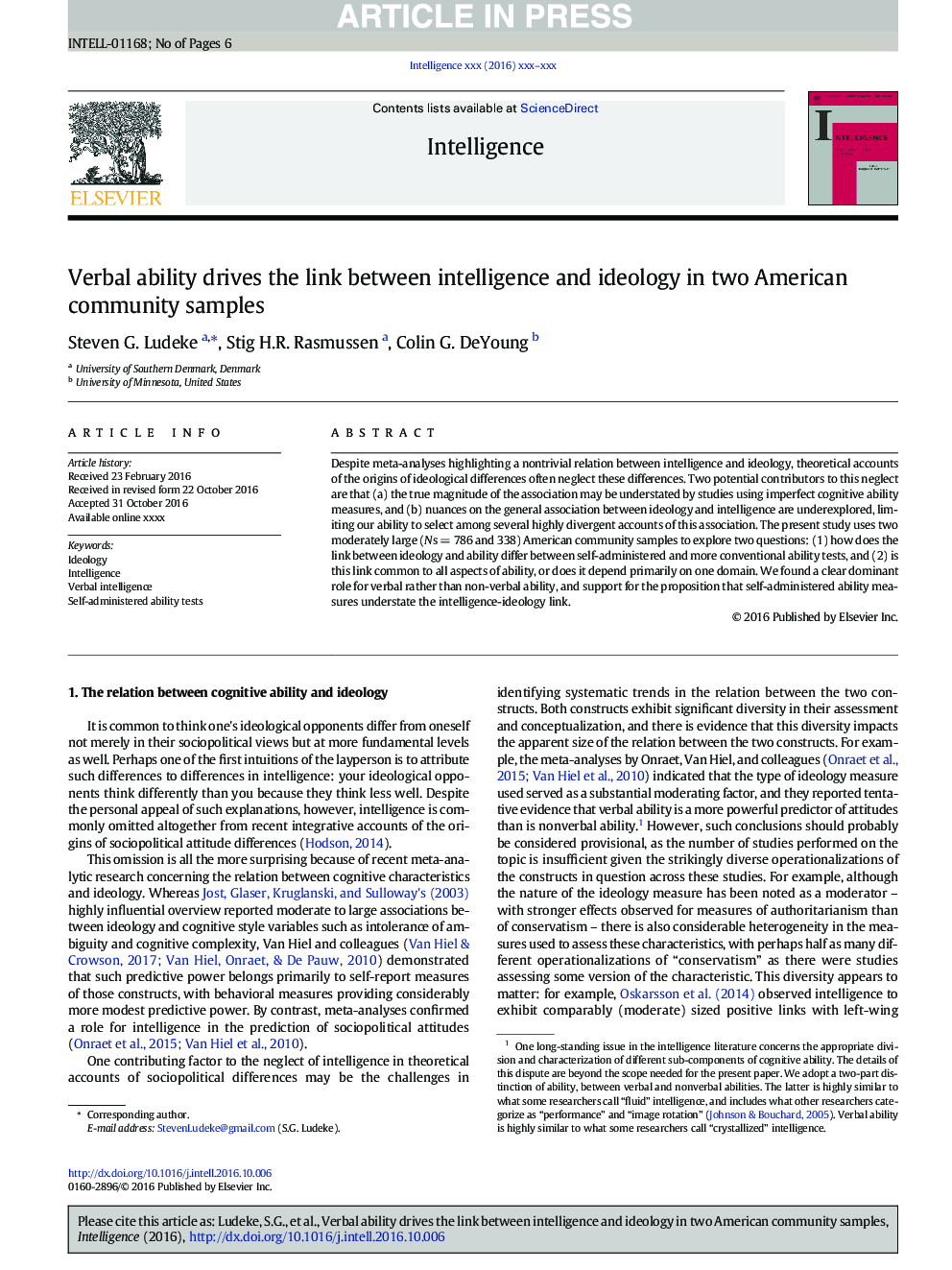| Article ID | Journal | Published Year | Pages | File Type |
|---|---|---|---|---|
| 5042140 | Intelligence | 2017 | 6 Pages |
Abstract
Despite meta-analyses highlighting a nontrivial relation between intelligence and ideology, theoretical accounts of the origins of ideological differences often neglect these differences. Two potential contributors to this neglect are that (a) the true magnitude of the association may be understated by studies using imperfect cognitive ability measures, and (b) nuances on the general association between ideology and intelligence are underexplored, limiting our ability to select among several highly divergent accounts of this association. The present study uses two moderately large (Ns = 786 and 338) American community samples to explore two questions: (1) how does the link between ideology and ability differ between self-administered and more conventional ability tests, and (2) is this link common to all aspects of ability, or does it depend primarily on one domain. We found a clear dominant role for verbal rather than non-verbal ability, and support for the proposition that self-administered ability measures understate the intelligence-ideology link.
Related Topics
Social Sciences and Humanities
Psychology
Experimental and Cognitive Psychology
Authors
Steven G. Ludeke, Stig H.R. Rasmussen, Colin G. DeYoung,
